Professional Ethics in Midwifery Practice is an applied ethics book designed for both students and practicing midwives to build ethical thinking in the context of daily practice. This unique text uses an accessible writing style and includes chapters on diversity and justice, informed consent, multiple relationships, confidentiality and privacy, scope of practice, and others. Realistic case examples throughout the text encourage critical thinking in applied ethics. The authors present a unique model for midwives’ ethical thinking and appendices include widely used codes of ethics in the field.
Professional Ethics in Midwifery Practice First Edition
Professional Ethics in Midwifery Practice is an applied ethics book designed for both students and practicing midwives to build ethical thinking in the context of daily practice. This unique text uses an accessible writing style and includes chapters on diversity and justice, informed consent, multiple relationships, confidentiality and privacy, scope of practice, and others. Realistic case examples throughout the text encourage critical thinking in applied ethics. The authors present a unique model for midwives’ ethical thinking and appendices include widely used codes of ethics in the field.
Sh 14,140.00
1 in stock
Related products
-
Essentials of Anatomy and Physiology for Nursing Practice
Sh 7,280.009781473938465Effective, holistic nursing is impossible without a firm grasp of how the human body functions, but knowledge of the scientific theory on its own is not enough. Written with the needs of nurses firmly in mind and using the person-centred practice framework as a guiding principle, this book brings anatomy and physiology to life, combining the best of print and online learning into one integrated package. Key features: Connects theory with nursing practice by exploring the science from the perspective of a fictional family Uses a rich array of full-colour figures, diagrams, and video material including interactive figures, animations and mini-tutorials – perfect for visual learners Full of engaging activities designed to complement self-directed learning. Supported by a collection of digital resources, including 170 online multiple choice questions, over 800 revision flashcards, and complete access to videos, animations, revision material and action plans. Ideal for revision and consolidating knowledge. Visit https://edge.sagepub.com/essentialaandp to find out more. Get 12 months FREE access to an interactive eBook* when you buy the paperback! (Print paperback version only, ISBN 9781473938465) Each purchase includes 12 months access to an interactive eBook version, meaning you can study when and how you want and make use of additional tools including search, highlighting, annotation note sharing and much more. *interactivity only available through Vitalsource eBook
-
Netter’s Clinical Skills, 1st Edition
Sh 3,080.00Make the most of every patient encounter – from the clinical interview and history to the physical exam, both in-office and bedside. This discreet quick reference by Ilene L. Rosenberg, MD, FCCP, Todd Cassese, MD, FACP, and Dennis Barbon, RN, helps you achieve consistent and comprehensive results when collecting data and determining your next steps. Carry this thin, fully illustrated checklist in your white coat pocket for the fastest, most efficient way to access essential information you need to know and remember every day.
-
Children with Developmental Disabilities: A Training Guide for Parents, Teachers and Caregivers First Edition
Sh 6,370.00This manual is designed as a guide for parents, teachers and caregivers dealing with children up to the age of six who are afflicted by developmental disabilities. The author provides details of more than 400 non-formal activities along with guidelines on how to use them both at home and in pre-school settings.
The book is divided into three sections:
– the first describes a wide range of impairments, disabilities and handicaps along with information on their manifestations and characteristics. The author also outlines steps to handle negative or problem behaviour during training.
– the next section presents a Comprehensive Activity Checklist for pre-school children. All items have been empirically tested and are located on a scale of increasing difficulty.
– the third section comprises two chapters. The first is a `do-it-yourself` activity assistance guide which will be of immense use to trainers, caregivers, teachers and parents. In the last chapter, Dr Venkatesan discusses contemporary problems and issues related to the rights and privileges of persons with developmental disabilities -
Davidson’s Principles and Practice of Medicine, 24th Edition(paperback)
Sh 10,640.00Well over two million medical students, doctors and other health professionals around the globe have owned a copy of Davidson’s Principles and Practice of Medicine since it was first published over 70 years ago. Now in its 24th Edition, this thoroughly updated textbook describes the pathophysiology and clinical features of the most frequently encountered conditions in the major specialties of adult medicine, and explains how to recognise, investigate, diagnose and manage them. Taking its origins from Sir Stanley Davidson’s much-admired lecture notes, Davidson’s has endured because it keeps pace with how modern medicine is taught and provides a wealth of trusted information in an easy-to-read, concise and beautifully illustrated format.
Key features:
-
- Part 1 ‘Fundamentals of Medicine’ – provides an account of the principles of genetics, immunology, infectious diseases, population health, oncology and pain management, along with a discussion of the core principles behind clinical decision-making and good prescribing.
-
- Part 2 ‘Emergency and Critical Care Medicine’ – covers medical emergencies in poisoning, envenomation and medicine in austere environments, as well as common presentations in acute medicine and the recognition and management of the critically ill.
-
- Part 3 ‘Clinical Medicine’– covers the major medical specialties, each thoroughly revised and brought fully up to date. A new section on COVID-19 has been added and the impact of this infection is described throughout the book.
-
- Clinical Examination overviews – extended and updated to summarise the main elements for each system.
-
- Presenting Problems sections – provide a clear pathway for the assessment of and approach to the most common complaints in each specialty.
-
- Practice Point summaries – detail the practical skills that medical students and junior doctors must acquire.
-
- Emergency boxes – emphasise the core knowledge needed to manage acutely ill patients.
-
- In Old Age, In Pregnancy and In Adolescence boxes – highlight differences in the practice of medicine in these patient groups, and illustrate the interfaces between medical, obstetric and paediatric services.
-
- The text is extensively illustrated – with over 1000 diagrams, clinical photographs, and radiology and pathology images.
- The global perspective is enhanced by an International Advisory Board of experts from 11 countries and by leading authors from around the world.
-
-
Management Principles for Health Professionals
Sh 7,420.00Management Principles for Health Professionals is a practical guide for new or future practicing healthcare managers. The customary activities of the manager―planning, organizing, decision making, staffing, motivating, and budgeting―are succinctly defined, explained, and presented with detailed examples drawn from a variety of health care settings. Students will learn proven management concepts, techniques, models, and tools for managing individuals or teams with skill and ease.The Eighth Edition continues to present foundational principles of management in the context of contemporary health care. With timely coverage of such topics as medical cost sharing; use of robots; ER by appointment; increased use of observation units; renewed use of flextime staffing and scheduling; use of social media on the job, and more, this thoroughly updated text addresses the latest trends and issues that today’s health care manager is likely to encounter.Key Features- Presents 2 new tools ―The Manager’s Wheel Book and the Management Reference Portfolio ― to help new managers better understand their role and responsibilities and to aid existing managers in understanding their organization in detail- Covers managing care in a wide variety of health care settings (urgent care centers, specialty clinics, home care, etc.) outside of the traditional hospital setting.- Addresses technology and its impact, including eVisits/telemedicine, implementation of electronic health records, connectivity and the expectation that workers will respond during off hours via email and instant messaging, etc. – Offers expanded coverage on the importance and impact of corporate culture, the values of transparency and accountability, leadership style, and competitiveness.- Includes detailed examples of reports, plans, directives, union contracts, and more.
-
Miller’s Basics of Anesthesia, 8th Edition
Sh 14,700.00Long regarded as the undisputed leading text of its kind, Miller’s Basics of Anesthesia provides comprehensive yet concise coverage of both basic science and clinical topics in anesthesiology. Under the experienced editorial leadership of Dr. Manuel C. Pardo, Jr., the 8th Edition has been meticulously updated to reflect the latest advances in practice and important aspects of contemporary anesthesia care, including pathophysiology, pharmacology, regional anesthesia, anesthetic management, and special problems and patient groups. It remains the first learning resource of choice for anesthesia providers, including anesthesia residents and fellows, medical students, and student registered nurse anesthetists, and is also a valuable review tool for practitioners undergoing maintenance of certification or recertification.
-
Hutchison’s Clinical Methods International Edition, 25th Edition
Sh 6,370.00Sir Robert Hutchison first published his textbook on Clinical Methods in 1897 and this latest edition maintains its reputation as the go-to guide to learn the core skills every clinician needs in their everyday practice.
Medical students and doctors in training will find essential guidance to taking a full history, examining a patient and interpreting the findings. They will learn the art of understanding, contextualising, communicating and explaining, with the doctor-patient relationship firmly at the centre of their practice. These skills remain essential for every doctor, in addition to modern investigative methods.
The book covers basic principles, different patient groups and all the main body systems. Each chapter includes relevant clinical methods and offers guidance for appropriate investigations. New methods and investigations are incorporated into established patterns of clinical practice to offer a fully integrated approach.
This award-winning textbook remains as relevant today as ever and will be treasured by doctors at all levels of training and practice as an outstanding source of learning and reference.
Key Features-
- All chapters carefully reviewed and updated to reflect modern practice
-
- Written by experts in their field and reviewed by an International Advisory Board – content is relevant to a wide international readership including in the Indian sub-continent, the Middle East and Africa
-
- Covers all the main body systems, including the core areas of respiratory, cardiological, gastrointestinal, neurological and locomotor systems
-
- Text organised by system and problem to aid navigation
-
- Chapters can be read individually, to avoid duplication and need for cross-referencing
-
- Tabulated information and diagrams for clarity and conciseness
-
- Tailored to student needs but suitable for doctors at all levels of training and practice
-
- Winner of multiple awards, including the BMA book awards
-
- New appendix describing the clinical features of COVID-19
Author InformationEdited by Michael Glynn, MA, MD, FRCP, FHEA, Consultant Physician, Gastroenterologist and Hepatologist, Barts Health NHS Trust; Honorary Senior Lecturer, Barts and the London School of Medicine and Dentistry; Former National Clinical Director for GI and Liver Diseases, NHS England and William M Drake, DM FRCP, Consultant Physician/Reader in Medicine, Department of Endocrinology, St Bartholomew’s Hospital, London, UK -
-
An Introduction to Forensic Genetics, 2nd Edition
Sh 16,198.00This is a completely revised edition of a comprehensive and popular introduction to the fast moving area of Forensic Genetics. The text begins with key concepts needed to fully appreciate the subject and moves on to examine the latest developments in the field. Now illustrated in full colour throughout, this accessible textbook includes numerous references to relevant casework. With information on the full process of DNA evidence from collection at the scene of a crime to presentation in a legal context this book provides a complete overview of the field.
Key Features:
- Greater in-depth coverage of kinship problems now covered in two separate chapters: one dealing with relationships between living individuals and the other covering identification of human remains.
- New chapter on non-human forensic genetics, including identification of bacteria and viruses, animals and plants.

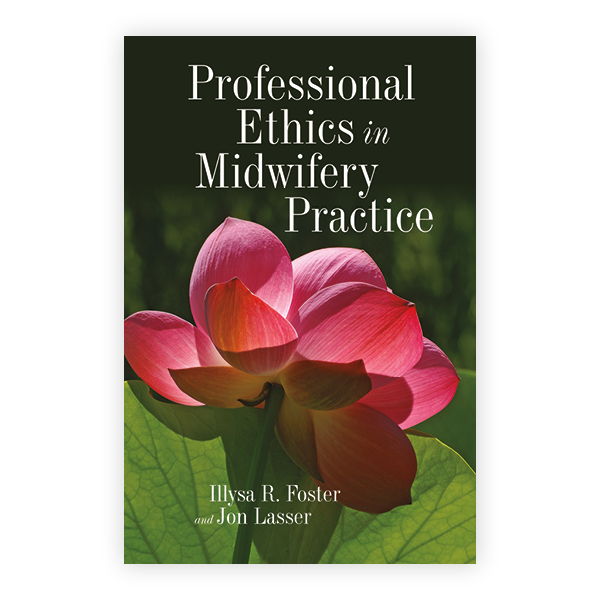
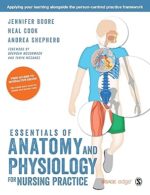
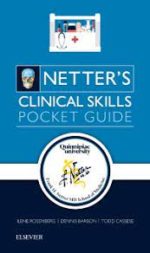
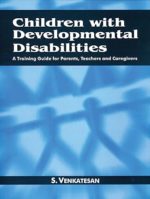

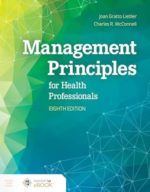
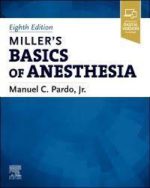
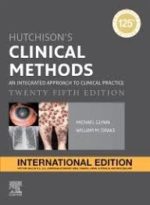

Be the first to review “Professional Ethics in Midwifery Practice First Edition”